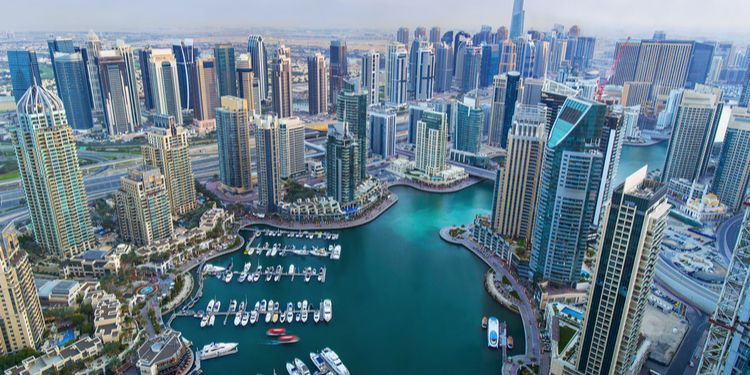
Middle East countries remain one of the world's most attractive destinations for expats for many reasons including high wages, low or practically no taxation, and a high standard of living. For those who have always dreamed of pursuing their career in one of the Gulf countries, here's what you need to know about the region's labour market and current career trends.
Where to find jobs in the Middle East

The United Arab Emirates, Saudi Arabia, Oman, Qatar, Bahrain and Kuwait have been attracting foreign professionals in large numbers in past decades, regardless of their origins. Low or practically no income tax, high wages and a wide range of career prospects are just some of the reasons behind their popularity. Even though a couple of countries like the UAE and Saudi Arabia recently set up a nationalisation process to give a chance to locals, the Middle East remains a top destination for those looking to pursue their career in a modern, promising and highly competitive environment.
Dubai and Abu Dhabi, for example, are some of the top destinations for foreign professionals in the Middle East since most of the major projects are taking place there – which explains the need for human resources. Abu Dhabi owns almost 10% of the world's oil reserves, so it won't be hard to find a job there. Dubai may not have fossil resources, but over the years it has attracted many multinational companies, not to mention the dynamic entrepreneurial scene that is a vast job pool.
Saudi Arabia is not only one of the region's wealthiest countries but also the most populous. Jobs are plentiful in a range of fields like banking and finance, education, the oil industry, trade and technology, even though local authorities are now focusing on Saudisation. As one of the world's wealthiest countries, Qatar can boast of the opportunities offers in various fields like trade, banking and financial services, education, construction, keeping in mind that the oil and gas industries are its primary resources. The recent rise in oil prices made Qatar emerge as one of the world's fastest-growing economies. Besides, major investment projects underway. The FIFA World Cup which will be held in Qatar in 2022 is a real boon for the tourism industry, so you might try your luck if you have the skills needed.
Like most Gulf countries, Bahrain's economy also depends heavily on the oil and gas industries. The country is also a major Islamic finance hub. There's also a growing demand for foreign talent in trade, tourism and infrastructure development. Bahrein has also been attracting foreign companies massively since the setting up of its free trade zones which are stimulating not only its economy but also the labour market.
The labour market

Today, the Gulf's labour market mainly consists of foreign professionals. Most of them work in multinational companies as well as in health, banking, information and communication technologies, project management, media and public relations, and advertising. Most of these countries are also rich in teaching opportunities since they have many international schools and language schools.
Keep in mind, however, that you must have particular skills to land a job in the Middle East. In banking, for example, you must have not only a solid experience in international banking but also expertise in anti-corruption regulations, as well as knowledge of the local market and a good command of Arabic. In technology, there's a growing demand for developers, analysts and project managers, so you need skills in business intelligence, data analysis, and programming languages like .NET (C # / .ASP), Java, JavaScript, PHP, AngularJS, SQL.
In the United Arab Emirates, there's a significant demand in legal professions. Candidates having studied in Western countries and with good knowledge of Arab laws and procedures, and who are fluent in English, can apply.
Wages and other benefits

Middle East countries are world famous for their high wages, taking into account that there's no income tax, as well as many other benefits. In general, expat packages include accommodation or a housing allowance, medical coverage, school fees where candidates are moving with their family, as well as a return ticket every year to their home country. Even if the package doesn't include housing, you can still get away reasonably with your salary – keeping in mind that rent prices are high in big cities like Dubai and Abu Dhabi.
In finance and accounting, salaries typically range from US$ 58,900 for a credit analyst to $ 490,500 for a risk manager. In technology, a Chief Information Officer can earn up to US$ 392,400 and a Chief Digital Officer with less than ten years of experience up to US$ 261,600. In Human Resources, an HR officer can earn between US$ 30,700 and US$ 34,700 per month while a Human Resources Manager can earn up to US$ 255,000. Regarding legal professions, a Legal Assistant can earn between US$ 45,800 and US$ 65,400 while a Chief Legal Officer can earn up to US$ 425,100.
Sources:



















